Thomas de Hartmann: Orchestral Music, Volume Two
The music of the Ukrainian-born Thomas de Hartmann (1884–1956) is only now beginning to be rediscovered, almost seven decades after his death. The two works receiving their first recordings here reveal a major late-Romantic voice, downstream from Tchaikovsky, a student of Arensky and Taneyev, contemporary of Rachmaninov, and alert to the discoveries of Stravinsky and Prokofiev. The Symphonie-Poème No. 1 – a musical cousin of Rachmaninov’s Second Symphony – occupies a vast canvas and requires a correspondingly huge orchestra, generating a monumental sense of scale from essentially balletic material. The lighter Fantaisie-Concerto for double bass and orchestra moves from tangy dissonance via a tuneful slow movement to a perky, folk-inspired finale.
Leon Bosch, double bass (Tracks 4–7)
Lviv National Philharmonic Orchestra of Ukraine
Theodore Kuchar, conductor
Listen To This Recording:
- I Lento
- II Scherzo
- III Andante
- IV Finale
- I Allegro con brio
- II Romance 1830: Adagio
- III Finale: Allegro commodo
Symphonie-Poème No. 1, Op. 50 (1934)
Fantaisie-Concerto for double bass and orchestra, Op. 65 (1942–44)
FIRST RECORDINGS
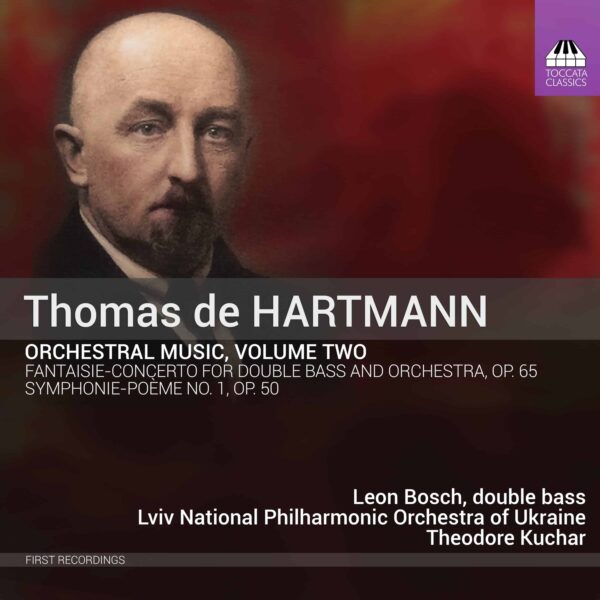
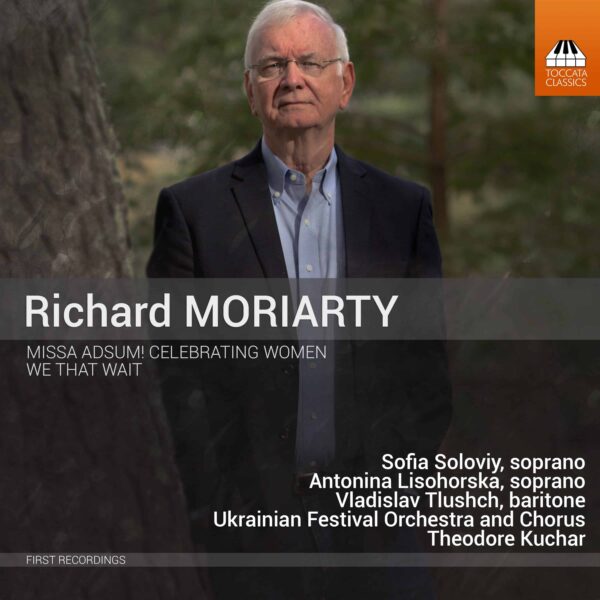
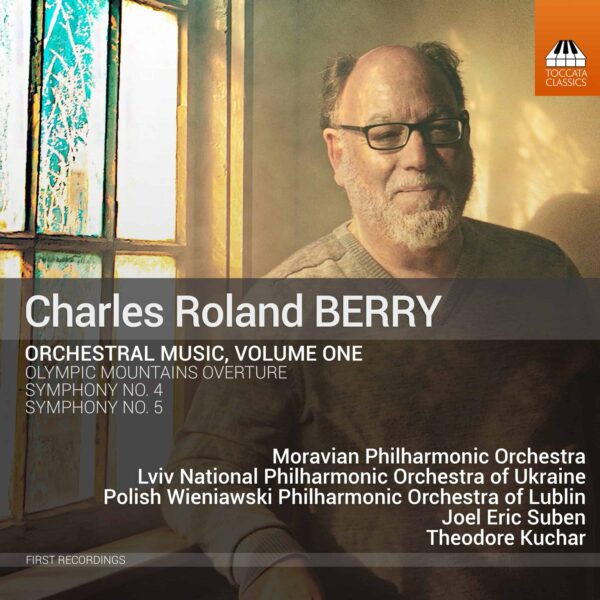
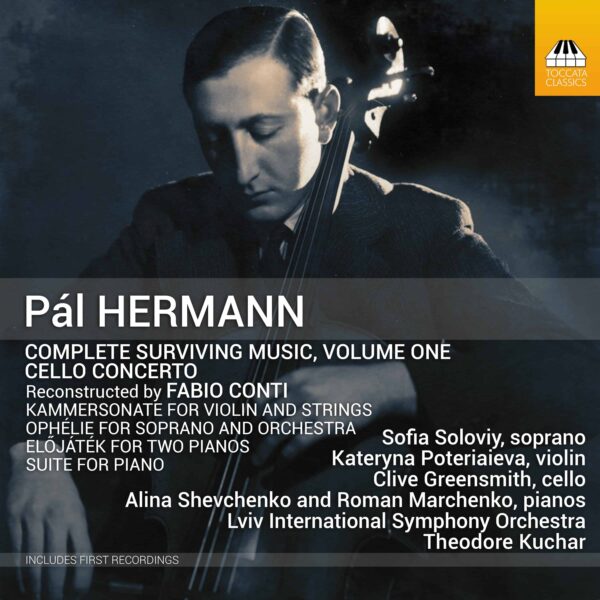
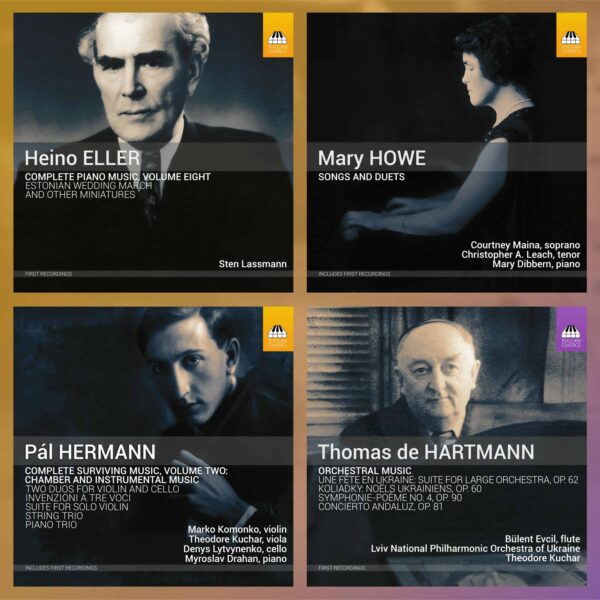
MusicWeb International :
‘Overall, this is a hugely interesting symphony, uniquely orchestrated with occasional moments of breath-taking beauty […]Coupled with an unusual concerto, both of which are performed with tremendous panache and dedication by the Lviv National Philharmonic Orchestra under Theodore Kuchar and all captured in glorious sound, this release is highly recommendable, both to listeners who enjoy early twentieth century romantic symphonies, as well as those curious to discover the music of de Hartmann.’
—Lee Denham, MusicWeb International
MusicWeb International :
‘[…] I wondered if Toccata Classics had managed to unearth yet another major yet forgotten work [The Symphonie-Poème No 1]. The simple – and rather wonderful – answer is yes […]
This is certainly a major work [The Symphonie-Poème No 1] and a rewarding listen for anyone who has a taste for large-scale symphonic works written in a post-Romantic idiom. Praise too for the performance of the Lviv National Philharmonic Orchestra of Ukraine under Theodore Kuchar and the work of producer-engineer Andriy Mokrytskiy. Clearly this is a work unknown to the wider world prior to this recording which was part of a three concert ‘festival’ and associated sessions in Lviv. The orchestra play with an ideal combination of virtuosity and style. Interestingly, it does not sound like an Eastern European orchestra – with the wind and brass (yes there really is brass!) well-blended and balanced and the strings warm and rich. Kuchar is well-known to collectors for his wide and critically acclaimed discography and this is an important addition to it. This is a wholly convincing interpretation with Kuchar moulding this potentially discursive and unusual work into an impressive whole.[…]
Hartmann orchestrates with real flair and individuality [Fantasie-Concerto for double-bass and orchestra, Op 6] which is well-caught again by the impressive engineering on this disc.’
—Nick Barnard, MusicWeb International
MusicWeb International :
‘Nick Bernard’s recordings of the year
As mentioned above Toccata’s ability to discover remarkable but unknown music is astonishing. The symphony here is large at over 65 minutes, sprawling at times but written with a unique and passionate voice. Performed with the conviction and high skill it requires this was as unexpected as it was compelling.’
—Nick Barnard, MusicWeb International
MusicWeb International :
‘Lee Denham’s recordings of the year
My first nomination for this year’s Recordings of the Year [is] Thomas de Hartmann. […] I […] am a great admirer of this work and if you too enjoy music in the style of the early twentieth century Russian Romantic School of Rachmaninov, Prokofiev and Glazunov, this is well worth discovering – and it is wonderfully played by the Lviv National Philharmonic Orchestra.’
—Lee Denham, MusicWeb International
Scherzo :
‘La Sinfonía-Poema nº 1 (1934), el gran descubrimiento de esta grabación, es una partitura monumental que, a lo largo de cuatro movimientos, transita –y ese es su gran atractivo – por territorios estilísticos imprevisibles donde pueden percibirse ecos e influencias de Rimsky-Korsakov, Scriabin, Rachmaninov o Prokofiev (incluso semejanzas con Respighi) a través de una orquestación extremadamente coloreada que aúna, además de grandes secciones de cuerda, viento y percusión, dos arpas, celesta, piano a cuatro manos y tres saxofones. […]
Bosch, Kuchar y los músicos ucranianos brindan versiones entusiastas –y muy bien grabadas– de ambas composiciones: los aficionados a explorar tierras vírgenes no deberían perdérselas’
—Juan Manuel Viana, Scherzo, February 2024